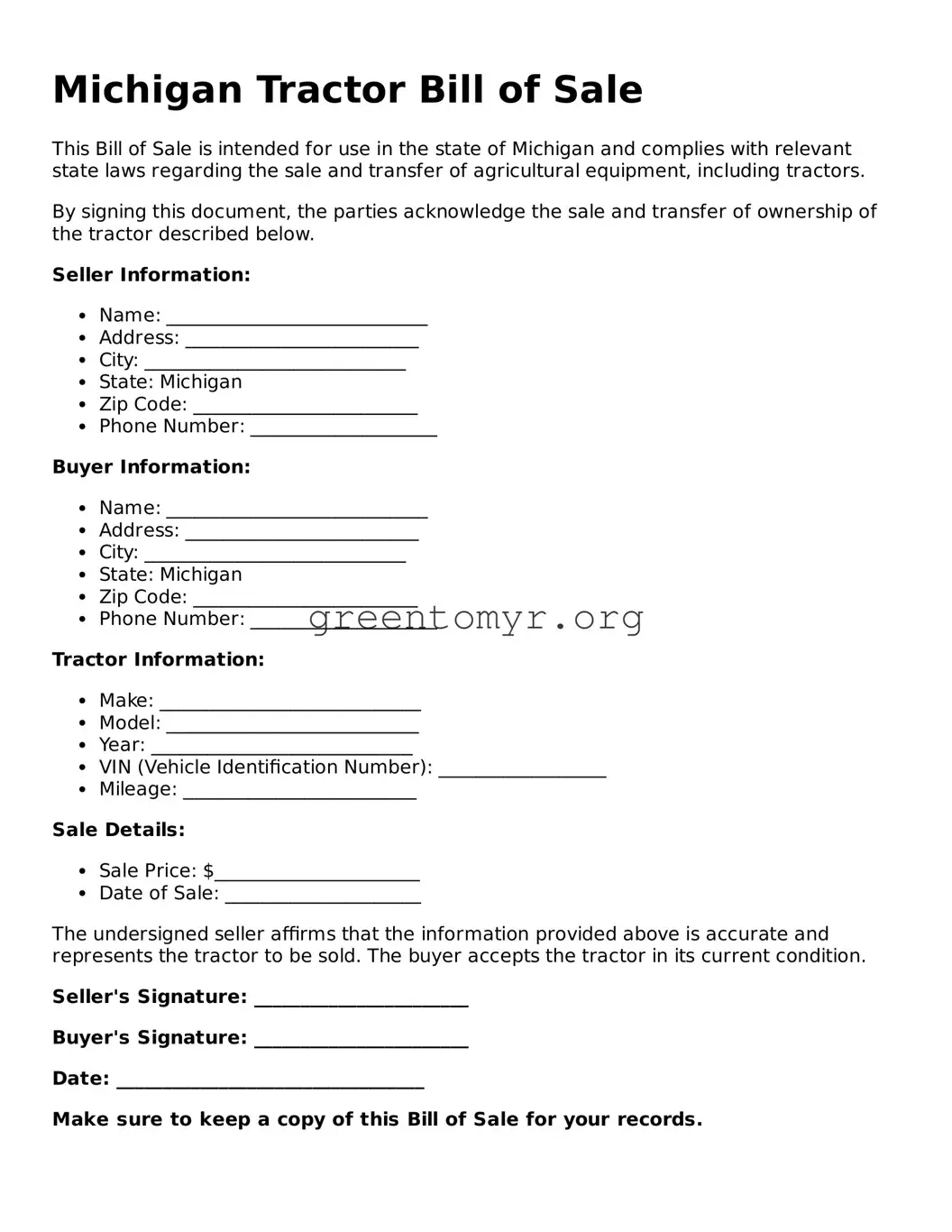Michigan Tractor Bill of Sale
This Bill of Sale is intended for use in the state of Michigan and complies with relevant state laws regarding the sale and transfer of agricultural equipment, including tractors.
By signing this document, the parties acknowledge the sale and transfer of ownership of the tractor described below.
Seller Information:
- Name: ____________________________
- Address: _________________________
- City: ____________________________
- State: Michigan
- Zip Code: ________________________
- Phone Number: ____________________
Buyer Information:
- Name: ____________________________
- Address: _________________________
- City: ____________________________
- State: Michigan
- Zip Code: ________________________
- Phone Number: ____________________
Tractor Information:
- Make: ____________________________
- Model: ___________________________
- Year: ____________________________
- VIN (Vehicle Identification Number): __________________
- Mileage: _________________________
Sale Details:
- Sale Price: $______________________
- Date of Sale: _____________________
The undersigned seller affirms that the information provided above is accurate and represents the tractor to be sold. The buyer accepts the tractor in its current condition.
Seller's Signature: _______________________
Buyer's Signature: _______________________
Date: _________________________________
Make sure to keep a copy of this Bill of Sale for your records.
